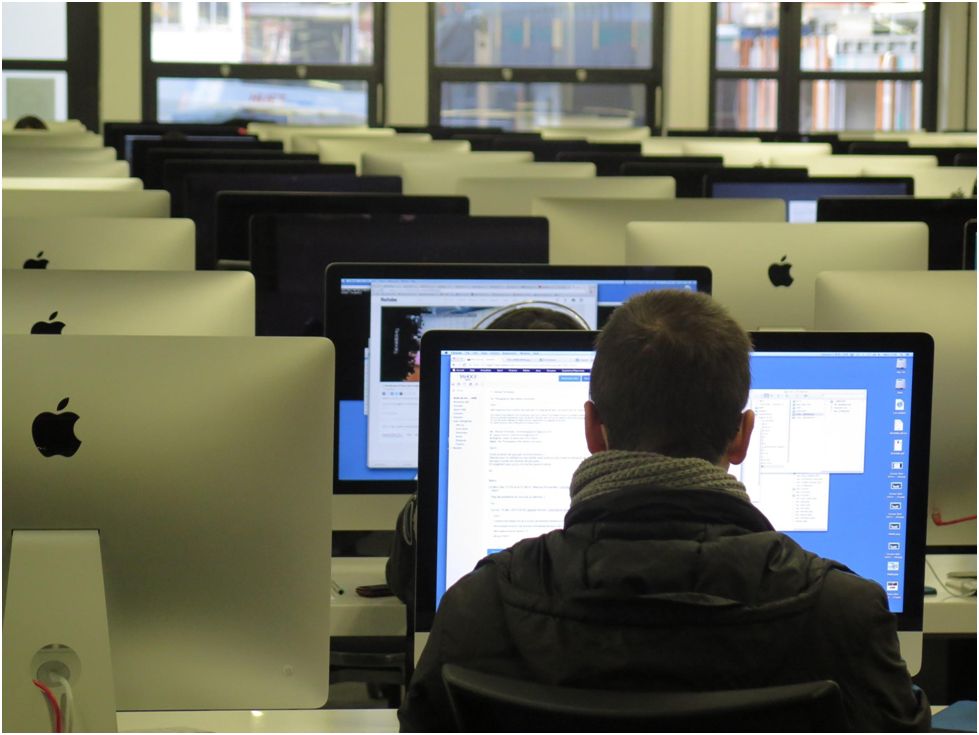There was a day in the not-so-distant past where the “tech” in a traditional classroom at a business school would consist of a chalkboard, a piece of chalk and some desks. These days, technology has infiltrated every corner of society and our lives. Business schools are no exception and, while some would lament the fact that textbook learning has gone the way of the dinosaur, technological advances have changed business education in a range of important ways. Let’s look at a few of them.

Accessibility
Business schools used to be among the most regimented, traditional learning environments in all of higher education. It had been done one way for decades and the old guard was keeping it that way. Now, students don’t have to be on-campus for a significant portion of their day. In fact, many don’t have to be on-campus at all. Online MBA programs are everywhere now, both at online schools and traditional schools. Even high-level, prestigious business schools — like Carnegie Mellon University, Villanova and Pepperdine — have programs that can be taken entirely online. These online programs often offer a mix of synchronous seminars (where students “attend” class at a set time in a virtual setting) and completely independent study.
Flexibility
With these technological advances, degrees have become more flexible, too. Required courses aren’t as set-in-stone. Students are given the chance to tailor their education to their interests and find curricula that work for their often-very-individualized needs. Want to add a course on data analysis to your MBA because you want to land a job that leans into that field? It’s possible. Need some credits in supply chain management for a job you already have? Completely doable.
This new flexibility doesn’t stop at course selection, either. More and more b-schools are letting students customize the pace at which they complete their degrees. This allows business students to work on their careers and even start families while they earn a master’s or doctoral degree in the field. When it comes to happiness and work/life balance, this might be the most important thing technology has done for business degrees.
Efficiency
While self-paced programs have allowed many students to take it slow and fit a college education into their family and work life, it’s also had the opposite effect. When students can learn at their own pace, they can choose to knock out courses in less time, take exams when they feel most ready and take on as many credits as they feel they can handle. That new approach has shortened programs, letting business degree students finish a semester — or even a year — faster than they would have in a pre-technology environment.
Variability
Business schools still relying on the old model of education aren’t seeing the same results. Why? No one learns the same way anymore. We’ve all become accustomed to summoning every scrap of data at our fingertips within seconds. If we don’t know how to do something, we look up an instructional video or we turn to social media and our peers.
Luckily, most business schools are riding this wave of innovation and integrating it into the classroom. Machine learning and artificial intelligence are creating exciting new learning opportunities. New software and cloud systems give students immediate access to everything they want to know, right from a smart phone or tablet. It’s an important evolution; when students find information at their prompting, they digest it better and learn faster.
Technological advances have led to a paradigm shift that will change business schools (and business) completely. Where the old model forced students to take in a predetermined set of information, technology will allow them to decide what’s important. It will let them satisfy their curiosities and, perhaps most importantly, it will empower them to find their niche to succeed and innovate in school and in the workplace.
Thanks for reading this article. You can subscribe for regular update about technology news and tips via RSS Feed.